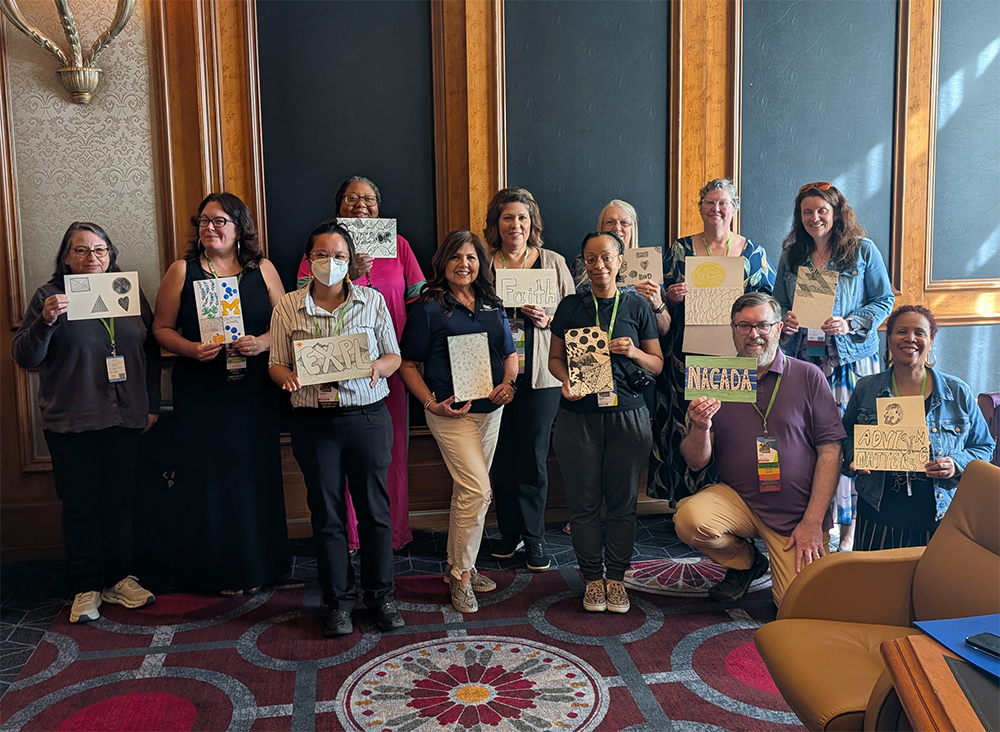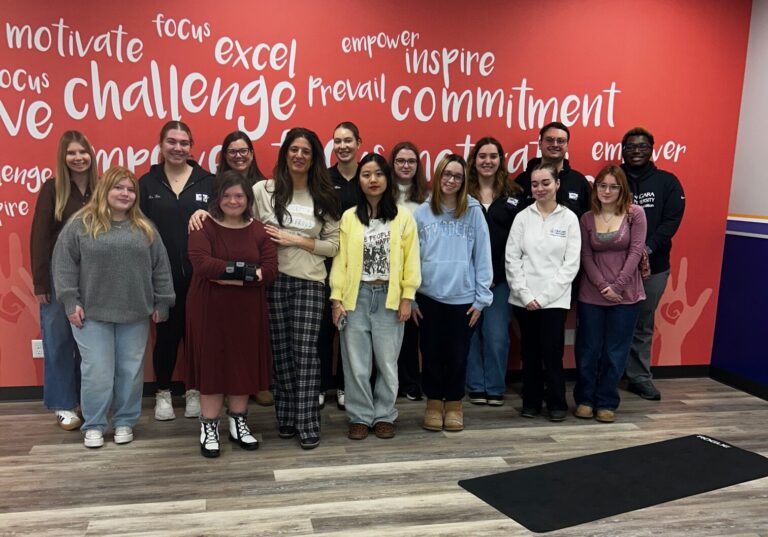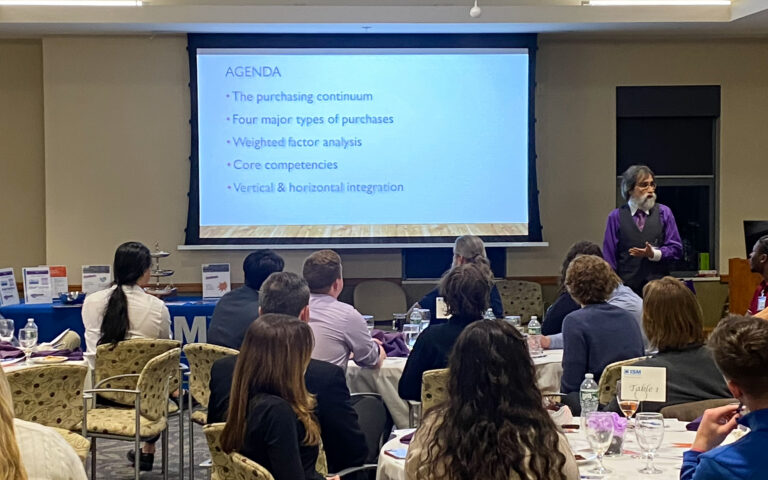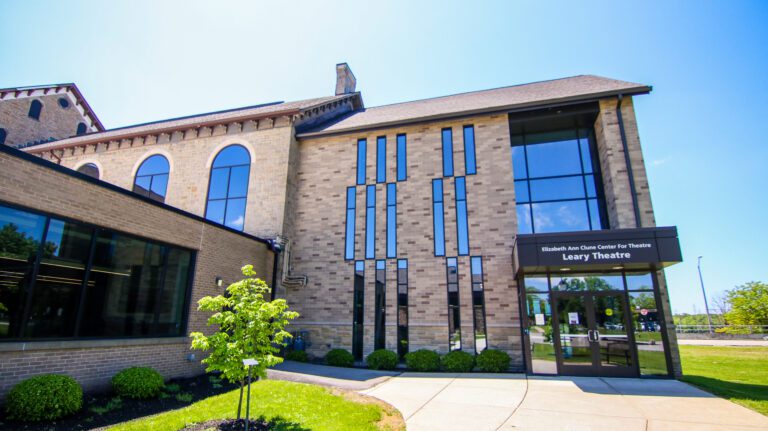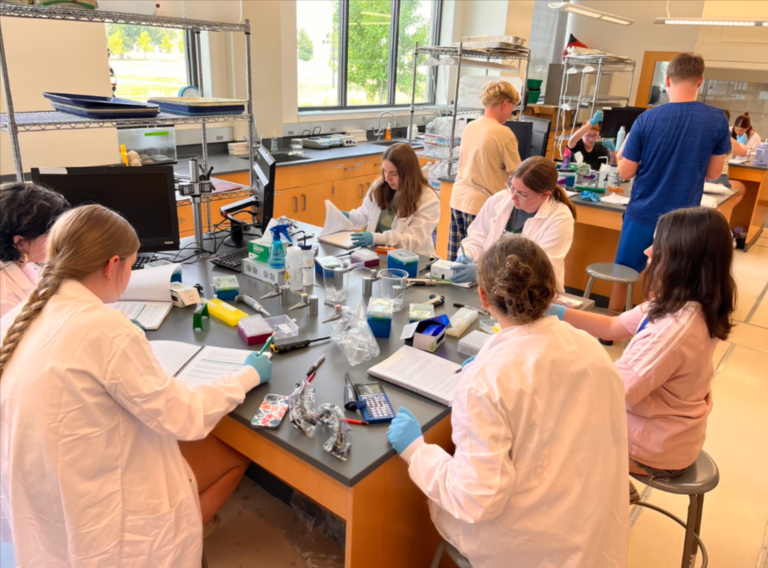Dr. John Sauter, associate dean for advising and administration in the College of Arts & Sciences, presented three sessions at the annual NACADA: The Global Community for Academic Advising conference, Oct. 26-29, 2025, in Las Vegas. His sessions, focusing on advisor development, included “Deconstructing Burnout in Advising: Reframing Solutions from Self-Care to Prevention,” “High Stakes Leadership: Betting on Books for Advising Success,” and “Luck of the Draw – Mindful Meditation through Ink Art.”
Dr. Sauter was also featured in the inaugural issue of Academic Advising Quarterly for his reflective artwork, “Advisortown: Everyday Helpers.” The poster, which hangs on a wall in his office, was created one year ago for the NACADA Art Exhibition in Pittsburg, Pa.
“Inspired by Richard Scarry’s ‘Busytown,’ it follows the path of a student from their initial entry into college through graduation,” Dr. Sauter explained. “Their path features 30 real-life advisors and their hobbies, inviting viewers to consider how their interests intersect with their helping roles and advising practices.”
Dr. Sauter was also referenced in episode 8 of The Pickup Meeting podcast featuring Isabelle Rena Langham, director of advising and technology initiatives at the University of Tennessee, Knoxville. Langham is Dr. Sauter’s mentee in NACADA’s Emerging Leaders Program, which attempts to build a sustainable community of strong NACADA leaders.
NACADA promotes and supports quality academic advising in institutions of higher education to enhance the educational development of students and provides a forum for discussion, debate, and the exchange of ideas pertaining to academic advising through numerous activities and publications.
Dr. Sauter holds a B.A. in history from Colby College, an M.S.Ed. in higher education and student affairs from the University of Vermont, and a Ph.D. in higher education administration from the University at Buffalo.
